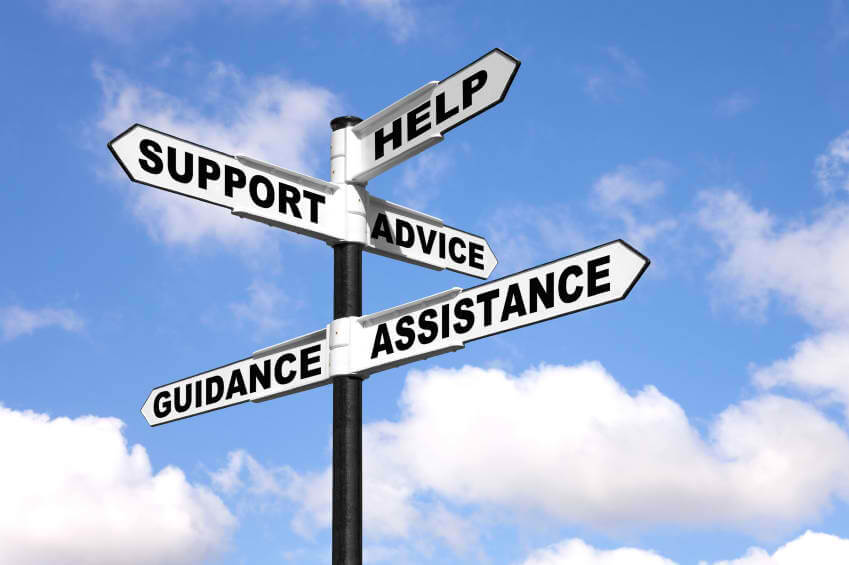Higher Education Mentoring and Coaching for Leadership
Higher education mentoring and coaching for leadership should be a strategic objective for professional development. I never thought much about mentoring and coaching until I was well into my admissions and records career. I started in admissions, where I was pretty much on my own. It was not until I became a registrar that I realized the significance of the people from whom I was learning. Higher education mentoring was instrumental in my professional development.
The man I consider my first mentor was the associate dean of academic affairs (to whom I reported), but I didn’t realize that I was being mentored until I figured out that many of his meetings with me were like tutoring sessions. He would describe his thought processes about a decision he had to make and then tell me what his decision was. I’m not sure he knew that I saw him as a mentor or even if he intended to play that role, but I’m guessing he did. I was a young, first-time registrar with a lot to learn, and he was the associate dean who actually knew quite a bit about the registrar’s duties (he often had to cover for my predecessor). I learned from him that not all decisions set precedents; each situation is unique, even though it may not seem to be. The higher education mentoring relationship is professional growth. Of course, some situations affected groups of students (for example, a certain section of a class), and related decisions had to be consistent. Also, there were times when a request from a student led to a new policy that we didn’t know we needed but nevertheless had to have (“That’s the ‘Smith policy,’ ” we would say in jest).
Registrar – Higher Education Mentoring and Coaching Relationship
Another of my mentors never knew that he served in the role of higher education mentoring relationship. We were good friends. We usually saw each other only at professional meetings, but that was enough for me to know that I had a lot to learn from him. I enjoyed listening to his stories, many of which I heard several times, and I very much appreciated his professionalism and ability to stand up for what he believed was right. Very rarely did I call or email him, but I respected him as I did very few colleagues I have known over the years. That respect was part of the mentoring relationship I had with him. Little did I know that over those years I would switch roles and become a mentor to others, whether I intended to or not.
What I came to realize is that if you stay in this business long enough, you will become a mentor. The mentor-mentee relationship is special: it can creep up on both of you, or it can be an objective decision by the mentee to see and utilize you as a mentor (or vice versa). Someone may choose you to be her mentor, or you may find someone you believe could benefit from your experience and so you become her mentor. Regardless, it is important to recognize the significance of mentoring in the admissions and records profession and to understand the mentor-mentee relationship.
Higher Education Mentoring: Important
 The higher education mentoring relationship in admissions and records is not necessarily the same as it is in the business world or in a college or university academic department. In the business world, it is often the busy manager who has as part of the job description the mentoring of newcomers to the office or the business. In academia, it is usually an associate professor who mentors the new tenure-track faculty member. Or it could be a committee or work group that meets with young faculty members on a regular basis to discuss teaching methods, research requirements, and other factors in the pursuit of tenure. In admissions and records, the mentoring relationship is usually more informal—so informal, in fact, that neither person may recognize when it begins or that it is happening. Mentoring in one’s office is common, of course; the director recognizes leadership abilities in a younger staff member and works with that person to help her grow professionally. Just as common, if not more so, is the long-distance mentoring that takes place by phone or e-mail—for example, with the mentor answering the queries of a less experienced registrar. Mentoring also takes place at conferences; often, a conference—for example, a workshop like Registrar 101—may be the setting for the beginning of a mentoring relationship. One of my most long-standing and rewarding mentoring relationships continues with someone who attended a Registrar 101 for which I was a faculty member. In fact, all of my mentoring has been long-distance since my long-time associate registrar left more than ten years ago for her own top management position. The higher education mentoring relationship facilitates professional growth and opportunities.
The higher education mentoring relationship in admissions and records is not necessarily the same as it is in the business world or in a college or university academic department. In the business world, it is often the busy manager who has as part of the job description the mentoring of newcomers to the office or the business. In academia, it is usually an associate professor who mentors the new tenure-track faculty member. Or it could be a committee or work group that meets with young faculty members on a regular basis to discuss teaching methods, research requirements, and other factors in the pursuit of tenure. In admissions and records, the mentoring relationship is usually more informal—so informal, in fact, that neither person may recognize when it begins or that it is happening. Mentoring in one’s office is common, of course; the director recognizes leadership abilities in a younger staff member and works with that person to help her grow professionally. Just as common, if not more so, is the long-distance mentoring that takes place by phone or e-mail—for example, with the mentor answering the queries of a less experienced registrar. Mentoring also takes place at conferences; often, a conference—for example, a workshop like Registrar 101—may be the setting for the beginning of a mentoring relationship. One of my most long-standing and rewarding mentoring relationships continues with someone who attended a Registrar 101 for which I was a faculty member. In fact, all of my mentoring has been long-distance since my long-time associate registrar left more than ten years ago for her own top management position. The higher education mentoring relationship facilitates professional growth and opportunities.
Only one person actually told me that he recognized me as a mentor. He fit the model of a mentee: a young professional who sought me out and was willing to initiate the mentoring relationship. He wanted to take advantage of the knowledge I had gained as a result of years of experience, and he had the ambition and desire to use that knowledge and assistance to grow professionally. He accepted my encouragement to get involved in professional associations and develop his own potential.
New Registrars
 Another new registrar saw me as the wise old mentor for young registrars (herself, in particular). She had not sought the registrar position at her institution but rather had been promoted to it, so she often sought help via e-mail, phone calls, and conferences.
Another new registrar saw me as the wise old mentor for young registrars (herself, in particular). She had not sought the registrar position at her institution but rather had been promoted to it, so she often sought help via e-mail, phone calls, and conferences.
I fit the definition of a mentor for each of those individuals. I was a more experienced, supportive colleague who was willing to share my expertise (especially that related to Banner and FERPA). I was often a sounding board for their ideas, and they knew that I would give impartial, non-judgmental feedback. Because of my belief in professional development, I also encouraged and often aided their participation in their state and regional associations especially in AACRAO. But in most cases, I was an accidental mentor: I was the one who was sought out to be the mentor.
It is important to understand the formats that the mentoring relationship can take. As mentioned previously, mentoring in the admissions and records profession can be very different from that in other professions. Yet there are similarities. The mentor-mentee relationship can be formal or informal, structured or unstructured. In formal mentoring (which is not as common in the admissions field), the relationship is often within an office and is based on a formal request with a contract or agreement that calls for a structured program of regularly scheduled one-on-one meetings within an expected time frame. There is often a set agenda with objectives and/or goals. Both parties have an understanding of where the mentee is expected to be at the end of the mentoring program.
An informal mentoring relationship is usually not a supervisor-employee relationship. More often, it is a casual, long-distance relationship in which the mentor is a sounding board or idea generator. In this often-spontaneous relationship, there is less of a sense of obligation or responsibility on the part of the mentee to follow the mentor’s advice or suggestions. Rather, it is up to the mentee to make whatever decision is necessary after listening to the advice and counsel of the mentor.
The structured mentoring relationship combines both formal and informal mentoring. The mentor is usually more in charge of both the process for and the agenda of the mentoring sessions, which are regularly scheduled and have established content including ideas, issues, and concepts to be discussed. Structured mentoring may include a formal contract with objectives and pre- and post-mentoring assessment measures. It is usually found in an institutional or office setting with staff members and employers or managers. A structured relationship may eventually morph into an unstructured relationship if the mentee’s needs or situation change.
Higher Education Registrar
Unstructured mentoring allows for more flexibility and spontaneity; the mentee often contacts the mentor as needed rather than according to a predetermined schedule. As a result, the mentee is more responsible for the process, seeking out the mentor, who responds in turn to the mentee’s needs or agenda. There is no formal developmental plan for the mentee; rather, mentoring takes place on an ad hoc basis and perhaps even by phone or e-mail. A concern about unstructured mentoring is that it may be more difficult for a shy or introverted person to initiate such a relationship. Alternatively, a person might perceive his seeking a mentor as a sign of weakness or as an acknowledgment of his lack of knowledge. In fact, such an individual may be more in need of a mentor than he realizes. It is important to remember that mentorship is not a closed-ended proposition. Rather, it can continue so long as both parties remain interested or until either of them leaves the office (if internal) or the profession.
 Who Is a Mentor and a Mentee?
Who Is a Mentor and a Mentee?
So who can be a mentee or a mentor? A mentee is characterized by:
- some experience in the profession
- a willingness to learn
- eagerness to take advantage of learning opportunities
- an ability to receive and appreciate non-judgmental, objective feedback
- courage to try new things
- acceptance of responsibilities
- openness and honesty, respect, and gratitude
- commitment to developing leadership and management skills
- desire to succeed and
- desire to give back to the profession.
A mentor is characterized by:
- experience in the field (more than the mentee)
- a record of professional success and accomplishment
- a value system rooted in honesty, empathy, and authenticity
- an ability to give non-judgmental, objective feedback
- leadership and management skills
- a desire to see others succeed
- personal investment in the profession
- a desire to give back to the profession and
- a desire to “pass the torch” or leave a legacy.
Are you ready as a potential mentee to approach a potential mentor? It can be difficult to take that first step. There are several ways to start the mentoring relationship:
- Meet as many experienced professionals as possible at your state or regional association meetings.
- Attend the AACRAO annual meeting—especially workshops and the first-timers meeting (as appropriate).
- Find someone who does what you do, who is what you want to be, or who is where you want to be in the future and take the initiative to ask for help, suggestions, and feedback. Establish the relationship over snacks in the vendor area or lunch. Be sure to ask for your potential mentor’s business card, e-mail address, and phone number, regardless of whether the individual knows you see him as a potential mentor.
Are you ready to be a mentor and coach? If you have some of the traits described above, you may be more ready than you think. Remember that a mentor provides feedback, not criticism. A mentor pulls, doesn’t push. The success of the mentee is not necessarily in the hands of the mentor, but the guidance a mentor provides can help form a confident, involved, and respected professional.
I did not seek out mentees; they found me, and I believe I have been successful (I possess most if not all of the traits described above). I continue to enjoy my role as a mentor. Neither did I search out my mentors; rather, I could learn from them by following their examples and listening to them. I am pretty sure they never knew that I perceived them as mentors; we never discussed it. These mentoring relationships were very informal and unstructured.
Similarly, you may already be a mentor without knowing it. Or perhaps you are being mentored but haven’t yet realized that your boss or a colleague has taken on this role in your relationship. Take advantage of either situation. You, your mentor or mentee, and the admissions and records profession will be better for it.
Contact Glenn Munson and focusEDU
1 Reprinted by permission from College and University, 2017, 92 (Fall, 2017), 45 – 48.


Leave A Comment
You must be logged in to post a comment.